Chile after Pinochet
Early on the morning of September 11, 1973, a column of tanks thundered through the center of Santiago towards La Moneda Palace, the residence of the Chilean president. With a group of supporters there was President Salvador Allende, who refused to surrender to the rebels because "a president elected by the people does not surrender." At 11 am, Hawker Hunter aircraft of the Chilean Air Force fired sixteen missiles at Moneda. Allende took the machine gun, put it to his head and pulled the trigger.

The leaders of the four military branches were responsible for the coup. General Augusto Pinochet, commander of the army, soon amassed enough power to establish a personal dictatorship. The National Congress was dissolved and political organizations banned. The right to freedom of speech, press and assembly is suspended. Political opponents of the regime asked for asylum in embassies. Some managed to leave the country legally using their passports. But even if the departure seemed voluntary on the surface, it was not at all so in reality. Pinochet's secret police left his opponents no choice. Journalist Ana Laura Cataldo recalled: “We met at Lucho's apartment and started talking about which of our friends were still at large, who was already in custody and who was dead. Then we began to realize that the circle was closing around us.” She fled to Lima in February 1974. But even abroad, Pinochet's opponents did not feel completely safe. So, the car of O. Letelier, the former minister of the government of Allende, took off into the air in the center of Washington.
The exiles were openly denounced as subversives, foreign agents, and anti-Chilean renegades responsible for a smear campaign not only against the regime, but also against Chile. In addition to exile abroad, the military regime used internal exile to punish enemies who were not considered dangerous. They were sent to remote areas without contact with friends and allies and required to report daily to the local police. By Decree No. 81 of November 1973, the military government required citizens who left the country after the coup to obtain permission from the Ministry of the Interior to re-enter Chile. None of the exiles who were considered dangerous were generally not allowed to return. When they renewed their passports at the Chilean consulates, many of them were stamped with a special letter L – it indicated a list of persons without the right to return.
The exiles were openly condemned as subversives, foreign agents and anti-Chilean renegades.
Despite the hardships of exile, the Chileans who emigrated took practical steps to improve their lives: they received higher education, acquired new skills, and saved up money in case of return. They worked to preserve the Chilean culture and pass it on to their children. They opened cafes with Chilean food and wine, created folklore groups, published bulletins. Sabbath schools were organized for children, in which they taught Spanish and Chilean culture. Exiled Chilean musical groups such as Inti Illimani (lived in Rome) and Quilapayún (lived in Paris) traveled constantly to support the expatriates and the spirit of resistance. The emigrants worked in the political sphere – telling their host countries about repression and human rights violations in order to pave the way for a possible restoration of democracy in their homeland. Political activists created divisions of the parties wherever there was even a handful of Chileans. The Socialist Party and UP ("People's Unity") made Berlin their headquarters. The Communist Party settled in Moscow, MIR ("Left Revolutionary Movement") – in Havana and Paris. Even the smallest political groups spread information about Chile, staged marches and demonstrations, and collected clothes for the poor.
Emigrants told other countries about human rights violations to pave the way for the restoration of democracy in their homeland
The emigrants pushed host governments to denounce the Pinochet regime at the UN and other international forums, supported campaigns to free political prisoners, and pressed for a ban on trade with Chile. In Canada, solidarity committees pushed the government to ban the sale of engines and aircraft parts to the Chilean air force.
In 1983 and 1984, protests in Chile revived the hope among exiles that the dictatorship could make concessions or even fall. Exiled political leaders wanted to return to join and lead the opposition. Prominent figures of the resistance began to fly into Santiago without permission to enter the country. In July, two members of the music group Inti Illimani landed at Santiago International Airport but were denied entry. On September 1, six UP leaders arrived on an Air France flight from Buenos Aires. Chilean agents entered the plane, beat them up and sent them back to Buenos Aires. The six returned the next day. They were again denied entry and sent to Bogotá.
Under economic and political pressure, Pinochet wanted to protect himself with a screen of liberalism. In 1980, a special constitution was adopted under it. The dictator himself declared the transition to "democracy". In 1987, a special decree allowed the formation of a parliament and a number of political parties. In 1988, they initiated a yes/no plebiscite regarding the continuation of Pinochet's rule. Naturally, the dictator was sure that he would be elected without any particular problems. In an attempt to present the October 1988 plebiscite as legal and fair, on September 1, 1988, the government announced that it was no longer preventing emigrants from returning.
In a country accustomed to controlled media, socialist leader Ricardo Lagos has been allowed a rare appearance on national television. Turning to the camera, Lagos said to the dictator: “You promise the country eight more years of torture, murder, human rights violations. <…> It is unacceptable for a Chilean to have such a desire for power to try to hold it for 25 years!” When panicked journalists tried to interrupt him, he remarked: "I speak for 15 years of silence."
Lagos, like all political opponents of the dictatorship, knew well what silence meant. He also knew what it was like to live away from home and feel helpless. In 1974, after the consolidation of the Pinochet regime, Lagos emigrated from the country and accepted a visiting professorship at the University of North Carolina at Chapel Hill. There he led, among other things, a conference at which opposition leaders discussed the lessons of the Chilean tragedy. Their meeting marked the beginning of a dialogue between the former rivals. A handful of emigrants discussing the drama of their country did not frighten Pinochet. But it was she who, having united in the Concertación de Partidos por la Democracia, an alliance of Christian Democrats and former leftists from Popular Unity, "threw" the dictator in a 1988 plebiscite.
Many leftists opposed participation in the plebiscite, expecting fraud, as they had done in Pinochet's previous referendums. They said that their participation would only legitimize the dictator's authoritarian constitution. Lagos argued that there was no alternative. He became the leader of a coalition of 17 parties against Pinochet. At the plebiscite that took place, 54% of those who voted opposed the dictatorship. During the year between the plebiscite and the elections (they were scheduled for the end of 1989), the opposition and the government negotiated the future of the country and amendments to the Constitution.
In the December 14 presidential election, the first after 17 years of dictatorship, Democrat Patricio Aylwin was elected president. Ricardo Lagos took over the post of Minister of Education in his government. On March 11, 1990, in the same football stadium that Pinochet used to intern and torture thousands of political opponents, the democratically elected president addressed the people of Chile. The dictatorship is over. She was defeated, as the Chilean sociologist Teresa Valdez would later say, with a pencil. The situation both in the country and in parliament was difficult. The opposition won the election by a narrow margin, and the influence of the former regime was still significant. To strengthen the new state ideology, the opposition used the "politics of memory": slowly and carefully, it conveyed to the population the idea of the cruelty of the Pinochet regime.
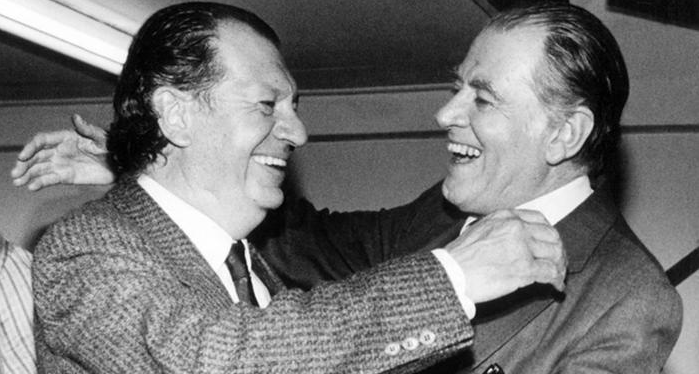
Chile's politics for many years ended up in the hands of emigrants – those who at one time fled the regime themselves or who were taken away by their parents when they were very young. The memory of the dictatorship was for them not only a public slogan, but also a personal narrative. In 2000, Ricardo Lagos took over as president. On the 30th anniversary of Pinochet's military coup in 2003, the president announced the creation of a commission to determine what happened to former political prisoners. In 2004, they also decided to pay compensation to more than 27,000 Chileans who were victims of political repression. Allende erected a monument near the presidential palace – as a hero who died in an attempt to protect Chilean democracy. In 2005, the Senate passed constitutional amendments that reduced the presidential term to four years.
Michelle Bachelet, daughter of Chilean Air Force General Alberto Bachelet, was born in 1951. When Pinochet came to power, she was 22. Her father refused to support an illegitimate government, was arrested and tortured, because of which he died. Michelle and her mother tried to continue his work by resisting the dictator, but they too were arrested and released only after the intervention of foreign governments. In 1975, the family was expelled from Chile. They lived in Germany and Australia where Michelle studied medicine. In 1979 she was able to return home. In March 2000, Michelle Bachelet became Minister of Health in the government of Lagos, in 2002 – Minister of Defense, and the first woman to hold this post in Latin America (in addition to medicine, Bachelet studied military strategy and continental defense in the late 1990s). In March 2006, Michelle Bachelet was elected president of Chile. Pinochet still found her presidency, although he could hardly be aware of it due to progressive dementia. The general was not punished for his crimes. In December 2006, when he died, both jubilant opponents of the former dictator and those who, wiping away tears, accompanied him on his last journey, took to the streets.
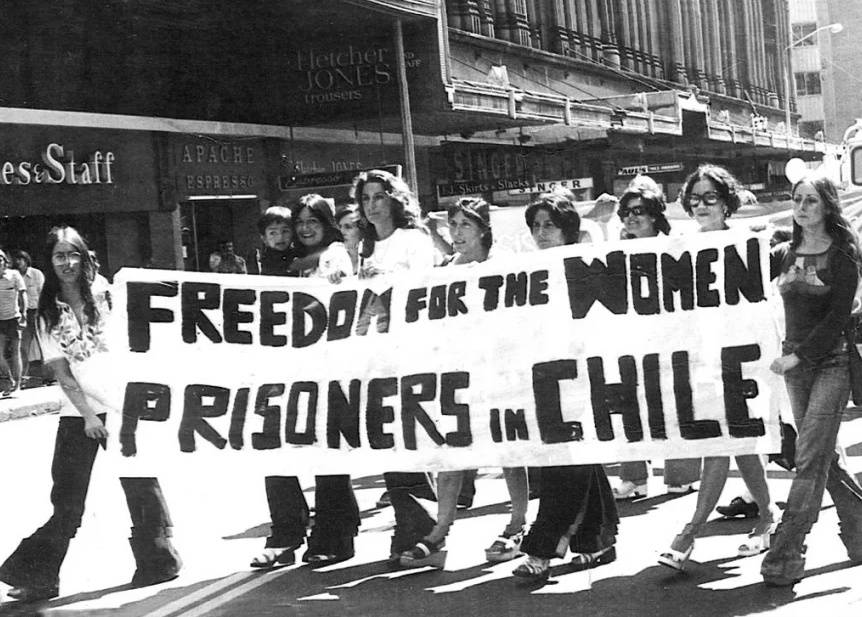
Since the restoration of democracy in Chile, a policy has been put in place to facilitate the return of Chileans who left the country for political reasons. Chile maintains relations with over 460,000 Chileans abroad. After the 2005 reform, this list also includes children of Chileans who were already born abroad. In modern Chile, people no longer flee the country, but leave most often for study (52% of the total) and usually to return.
Spain after Franco
After the establishment of the dictatorship of Francisco Franco in Spain, about 500 thousand people were forced to leave the country. Their exodus is usually called a republican or Spanish expulsion: although not all of those who fled positioned themselves as republicans, the majority opposed the new regime. In their homeland, imprisonment or death awaited them. They felt like losers, but even abroad, cut off from home, they continued to fight against the dictatorship. According to official statistics from the Spanish Institute for Emigration, between 1960 and 1973 another million Spaniards emigrated from the country. However, during the late Francoist period, Spaniards often left for better living conditions or in search of work, and not just out of political dissent. If we take into account those who did it illegally, the number will go over 2 million. The choice of country largely depended on political orientation, but Mexico, France and the USSR remained the most popular destinations.
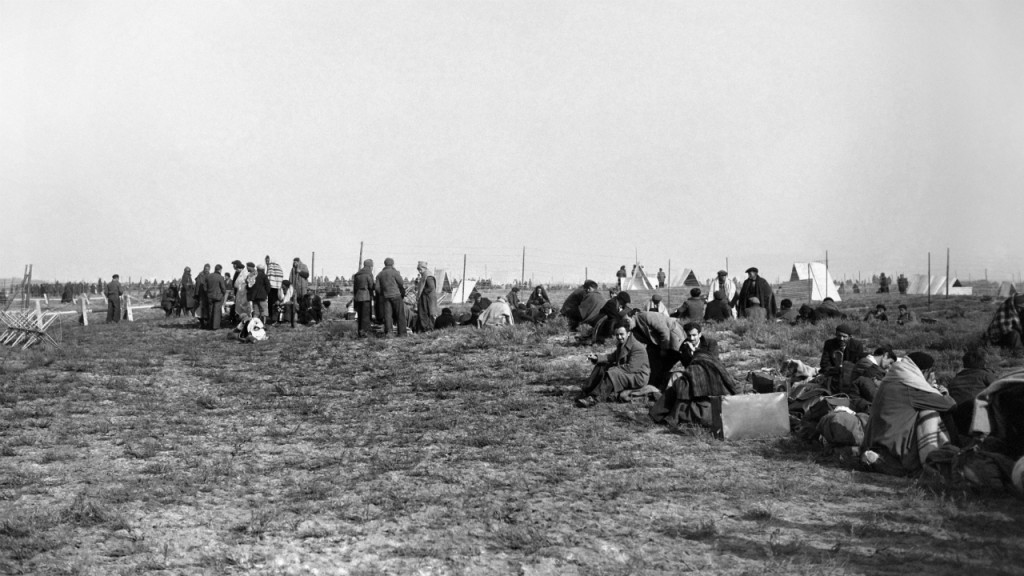
The emigrants were not isolated or alienated from those who remained in Spain. As a rule, they maintained contacts with their native country – they wrote to relatives, sent them money or parcels. Censorship of letters, especially severe in the early years of the dictatorship, weakened over time. Western Union documents confirm that it was relatively easy to send money home. The emigrants kept in touch with each other. For example, the Committee for the Relief of the Spanish People (Comité de Apoyo al Pueblo Espanol), based in Mexico, helped the victims. In France, Spanish refugees published the newspaper La Voz de Madrid. The most popular part of it was the "Paraderos" ("Location") section. It consisted of lists of names and locations of people who hoped to find each other.
Many political emigrants dreamed of returning home. They continued to follow what was happening in Spain and tried to influence the country's politics from abroad. The integration of those who left into European political networks gave them the opportunity to lobby their positions within Europe in order to counter the rise of Francoism. In November 1943, the emigrants formed the Spanish Liberation Junta, which claimed to be the main body of the Spanish opposition. Through the UN, she intended to seek the overthrow of the regime. The Spanish Liberation Junta represented the opposition at the founding conference of the United Nations in San Francisco, where Spain itself was not invited. Its activities, however, did not always develop successfully due to the significant disunity of the opposition forces. Despite the fact that the leaders of the IMO were received at the highest level, the government in exile did not receive diplomatic recognition.
The integration of those who left into European political networks gave them the opportunity to lobby for their positions within Europe
In the post-war period, Franco actively sought to reintegrate the country into the world order, primarily through Washington. Already in 1946, the Pentagon called Spain a potential ally: America was primarily interested in the possibility of deploying naval and air bases in Spain. In 1950, growing US support forced the UN to lift sanctions imposed on Spain. Most of the UN member states appointed their ambassadors to Spain, resuming diplomatic relations. The European powers were initially much less accommodating, although France and Germany encouraged the economic development of Spain – both for their own benefit and in the hope of creating conditions there for the restoration of democracy. In December 1955, Spain joined the UN, which provoked an identity crisis for many refugees. They asked each other: if Francoist Spain was allowed to join the UN, then no one really needs the anti-fascist struggle? In 1961, General de Gaulle called Franco and the Spanish regime "a factor of stability and social peace throughout the world and especially in Europe." In February 1962, the Spanish government initiated "negotiations to explore the possibility of establishing association with the Community [European Economic Community (EEC)] . capable of eventually leading to full integration.
Spain's bid provoked outrage from many opponents of the Franco regime, who mobilized through political parties, trade unions and the media in an attempt to prevent him from joining the Treaties of Rome that laid the foundation for the EEC. In June 1962, more than 100 leaders of the Spanish opposition, both exiled and living in Spain, gathered in Munich under the auspices of the Fourth Congress of the European Movement (the European Movement). They insisted that "the integration of any country with Europe, whether in the form of full membership or association, requires democratic institutions." On their return from Munich, the dissidents living in Spain were again forced to choose between exile and imprisonment. European national parliaments did not like such pressure. In October 1962, consideration of all applications for association with the Community was suspended.
The integration of any country with Europe, whether in the form of full membership or association, requires democratic institutions
November 20, 1975 Franco died after a long illness. The longest dictatorship in European history, which lasted from 1939 to 1975, is over. The death of a dictator did not drive people to the streets to demand democracy. The bureaucracy continued to function, the army remained loyal to the regime. In fact, since the end of October, the country has been led by Prince Juan Carlos, who was announced as the official successor back in 1969. The oppositionists perceived Juan Carlos as a temporary compromise and were preparing for a revolution. The Spanish-British scholar José Amodia commented on the future of Spain as follows: “It is naive to expect that the death of Franco will create a miracle. In the future of Spain, I see much darkness and almost no light; my forecast should be pessimistic.”
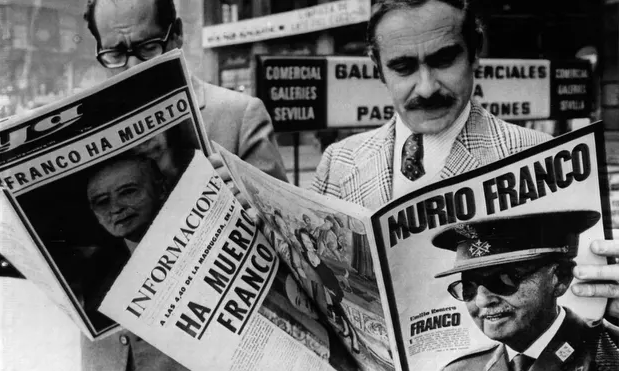
22 ноября наследника короновали как Хуана Карлоса I, короля Испании. Родившийся в Риме, в семье ссыльной королевской фамилии, он понимал, как недолговечны автократии. Еще в 1973 году принц говорил своему наставнику Торкуато Фернандесу-Миранде: «Монархия должна быть демократической. Только в таком варианте ее признают Европа и мир». Осенью 1974 года рухнул авторитарный режим в Греции, весной 1974 — в Португалии. Франкисты у власти осознавали кризис режима и искали выход из него. Даже в самых закрытых кругах допускали либерализацию.
Коридор для реформ у монарха был узким. В своем выступлении перед кортесами (восстановленные в 1942 году, они стали фактически собранием доверенных лиц правителя) Хуан Карлос I сказал: «Сегодня начнется новый этап истории Испании». Страна, пережившая почти полвека насильственной диктатуры, репрессий и беззакония, начала аккуратный, медленный переход к демократии. Хуан Карлос решил опираться на «цивилизованных правых» — поколение молодых политиков, не участвовавших в гражданской войне и готовых к переменам сверху. На пост председателя правительства он назначил Адольфо Суареса. Уже в первом обращении к нации Суарес провозгласил курс на демократические перемены и пообещал «уважать противников и предоставить им возможности для сотрудничества». После Франко такие обещания многим казались пустыми словами.
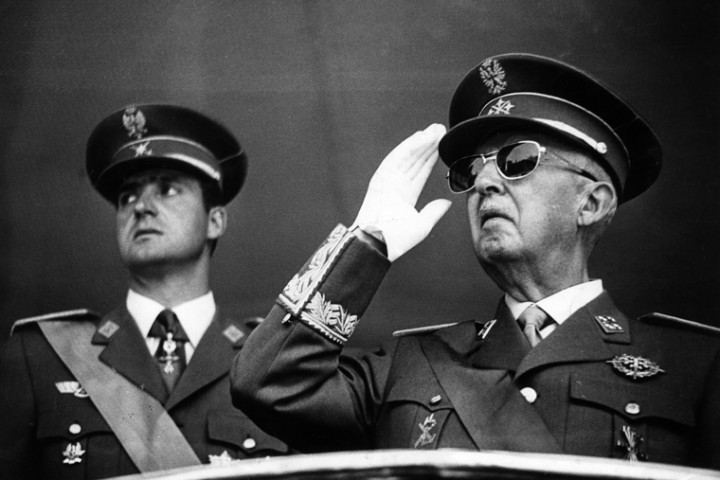
Однако в течение следующего года испанское правительство избавилось от наиболее одиозных и репрессивных институтов франкистского режима, провело амнистию политических заключенных, распустило Национальное движение, легализовало основные партии, включая компартию (главный объект травли Франко). При посредничестве Суареса после выборов 1977 года участники всего политического спектра — от консерваторов до коммунистов — договорились строить новый режим как можно менее конфронтационным способом. Внутрипартийное соглашение назвали пактом Монклоа (Pactos de la Moncloa, по названию правительственной резиденции в Мадриде). Еще в 1969 году возможность установления демократии в Испании именно благодаря консенсусу между объединенной оппозицией и политическими представителями прогрессивной буржуазии была предложена коммунистом Фернандо Клаудином на страницах эмигрантского журнала «Cuadernos de Ruedo Ibérico», хотя не нашла тогда значительного отклика.
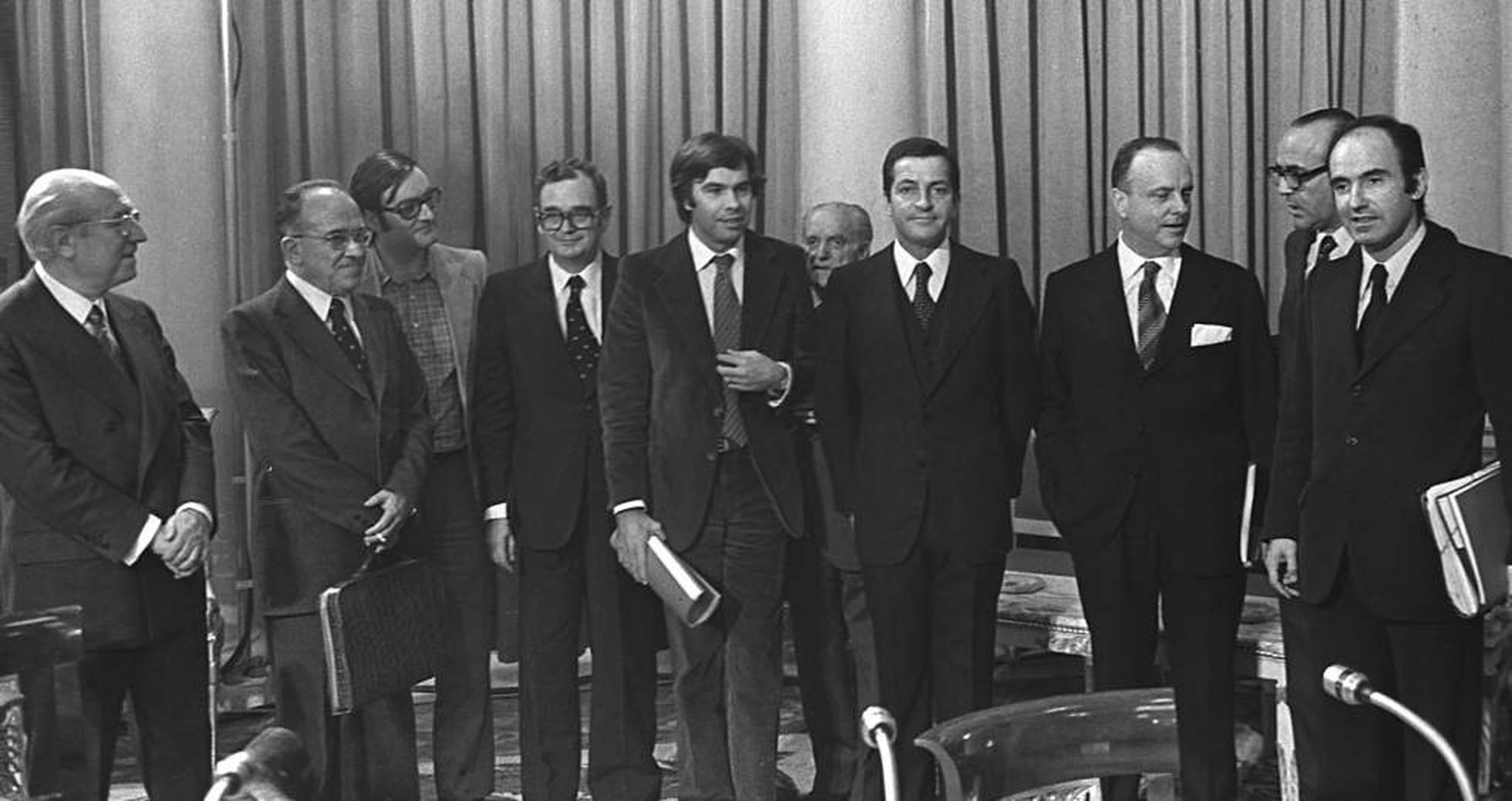
Переходные элиты установили конституционную монархию с парламентской системой, основанной на принципах представительной демократии. Они заключили «Пакт о забвении» (Pacto de Olvido), который имплицитно исключал политическое использование сторонами прошлого и истории. Все прежние обиды предлагалось забыть: Закон об амнистии 1977 года, например, освобождал политических заключенных в обмен на запрет судебного преследования лиц, виновных в нарушениях прав человека. Следующим шагом консенсуса стала Конституция 1978 года. В статье 42 она регламентировала , что «…государство будет особенно обеспечивать защиту экономических и социальных прав испанских рабочих за границей и направлять свою политику на их возвращение ».
Многие уехавшие вернулись в Испанию сразу после принятия Закона об амнистии 1977 года. Их возвращение не только укрепило веру в демократию внутри страны, но и активизировало поддержку демократической зарубежной прессы. В 1978 году текстом основного закона страны Испания, по сути, предложила своим подданным возвращаться домой. Сложно сказать, сколько точно испанцев откликнулись на этот призыв, поскольку официальная статистика почти полностью отсутствует. Десятки тысяч человек приезжали каждый год. Помимо экономических и трудовых последствий, возвращение эмигрантов несло в себе важные социокультурные и политические изменения. Они привозили в Испанию свои привычки, образ жизни и мышление, сформированные во время пребывания за Пиренеями — там, где не было диктатуры.
Возвращение уехавших испанцев укрепило веру в демократию внутри страны
Всего через несколько лет после формального отказа от своих авторитарных институтов Испания выполнила практически все требования, связанные со зрелой демократией. Свободные и конкурентные выборы подтвердила мирная передача власти от правых к левым в октябре 1982 года: большинство голосов получила Испанская социалистическая рабочая партия. В 1986 году Испания присоединилась к Европейскому экономическому сообществу (ЕЭС). В мае 1982 года нона стала шестнадцатым членом НАТО (соглашение ратифицировано на референдуме в 1986 году). Испания провела политическую, экономическую и социальную модернизацию за гораздо более короткий период, чем любая другая европейская страна. Демократизацию в испанском стиле называют «переходом путем компромиссов». Соглашение о будущем страны было заключено там на высшем уровне при относительно низкой активности населения.
Руанда после геноцида
С 1990-х годов к югу от Сахары начались процессы политического перехода, названные «второй волной освобождения Африки». Международное давление подталкивало африканские авторитарные режимы к политической либерализации. Многие из транзитов, особенно во все еще разделенных обществах, были затяжными и сопровождались насильственными конфликтами. Зарождающиеся «демократии», как правило, оставались номинальными — с конституционным порядком, разделением властей и проведением выборов, но без настоящего демократического содержания. В странах формировались так называемые гибридные режимы.
В этнократической Руанде доминировал этнос хуту. Тутси были фактически выключены из политической жизни страны. В начале 1970-х годов в стране ввели 9-процентную этническую квоту для тутси в школьном и университетском образовании. В официальных СМИ тутси изображались как люди, чуждые Руанде. Власть хуту довольно быстро эволюционировала в сторону автократии. В период с 1959 по 1962 год около 336 тысяч тутси бежали из страны и поселились в основном в четырех граничащих с Руандой странах: Бурунди, Уганде, Танганьике (Танзания) и Леопольдвиле (Демократическая Республика Конго). В Бурунди беженцы не имели права на получение гражданства, а значит, не могли устроиться на работу или получить образование. В Танзании руандийцы получали образование, участвовали в экономике, строили бизнес. В Уганде можно было даже получить высшее образование, беженцы там часто учили и английский язык. Во всех странах приезжие были слабо интегрированы в социально-экономическую жизнь. Они все еще чувствовали себя руандийцами и скучали по родине — слушали национальную музыку, радио Руанды, отмечали национальные праздники.
Руандийские беженцы были слабо интегрированы в социально-экономическую жизнь принимающих их стран
В изгнании беженцы тутси начали объединяться в партизанские отряды и нападать на Руанду из соседних стран. Они не собирались отказываться от возвращения домой. Многие из них были вооружены или имели военный опыт. В 1987 году в Кампале беженцы создали военно-политическую организацию — Руандийский патриотический фронт (РПФ) во главе с Полем Кагаме. В октябре 1990 фронт вторгся в Руанду из Уганды. В августе 1993 года в Аруше (Танзания) политическая элита Руанды, РПФ и внутренняя оппозиция заключили Арушский мирный договор, положивший конец гражданской войне. Однако просуществовал он недолго. 6 апреля 1994 года президентский борт, подлетавший к Кигали, столице Руанды, сбили. Президент страны Жювеналь Хабиаримана погиб вместе с остальными пассажирами. Ответственность за теракт власти возложили на Руандийский патриотический фронт, использовав нападение как причину развертывания массового геноцида против тутси. За два месяца в стране уничтожили около 800 тысяч руандийцев. Как минимум 750 тысяч принадлежали к этносу тутси. Геноцид в районе Великих Озер стал одной из самых масштабных катастроф XX века.
На сто дней государство перестало выполнять все свои функции и сосредоточилось на единственной — проведении геноцида. Участвовать в нем должен был каждый хуту Руанды. Уклонение наказывалось смертью. В июле 1994 года военная победа РПФ положила геноциду конец. Фронт занял страну, у которой уже не осталось сил сопротивляться, встав во главе государства, только что убившего десятки тысяч их собратьев. Ему предстояло восстанавливать страну. Первым делом сформированное Правительство национального единства призвало беженцев возвращаться.
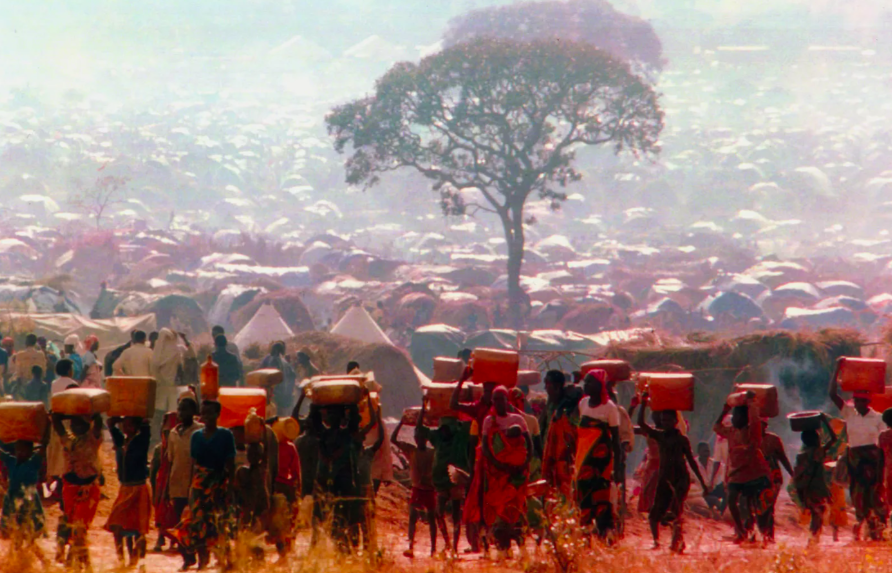
В период с 1994 по 1998 год в Руанду вернулось большинство эмигрантов. Страну они находили в разрушенном состоянии — с отсутствующими инфраструктурой, медициной, образованием, промышленностью. Подавляющее большинство репатриантов (примерно 47%) в течение первых пятнадцати лет после геноцида прибыли из ДРК. Скорее всего, давление, которое они чувствовали там, заставляло их желать возвращения в постгеноцидную Руанду в надежде, что получится построить новый мир дома. Правительство и весь влиятельный слой «новой» Руанды формировались из людей, не живших в стране в течение многих лет; а для прибывших моложе тридцати приезд часто был первым в жизни. Многие чувствовали эйфорию от возвращения, но быстро убеждались, что реальность куда сложнее фантазий.
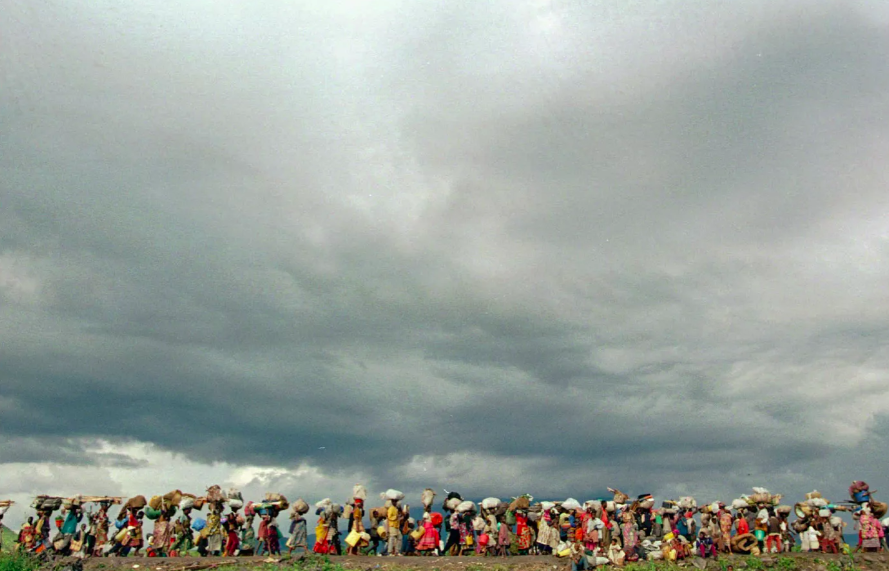
Руанду фактически восстановило правительство, полностью сформированное из бывших эмигрантов. Многие из них росли и получали образование за пределами страны. Шарль Муриганде, советник президента по иностранным делам, сказал про концепцию репатриации: «Все они руандийцы, и они заслуживают права жить здесь. Это то, за что мы боролись. Мы знаем, что значит быть беженцами». Выросший в лагере для беженцев в Бурунди, Муриганде получил образование в Бельгии, преподавал в Говардском университете (Вашингтон), но после геноцида отказался от академической карьеры, чтобы вернуться домой и помогать восстанавливать страну. Анастасе Мурекези, занимавший пост премьер-министра в 2014–2017 годах, тоже учился в Бельгии. Пьер Дамьен Хабумуремьи, премьер-министр в 2011–2014 годах, получил степень магистра во Франции, а степень доктора — в Буркина-Фасо. Большинство руандийских чиновников стремилось получить опыт за рубежом, чтобы вернуться и применить его дома. Министерство образования Руанды называет своей миссией предоставление «гражданам равных возможностей для получения образования в учебных заведениях мирового уровня».
Руанду фактически восстановило правительство, полностью сформированное из бывших эмигрантов
В 1995 году правительство Руанды начало проводить информационные кампании, нацеленные на руандийских беженцев. По программе «Иди и смотри, приезжай и рассказывай» для групп беженцев организовывали ознакомительные поездки на родину, чтобы они могли лично убедиться в достойных условиях жизни там. После знакомства группы возвращались в свои поселения, чтобы поделиться впечатлениями. Такие кампании особенно активно продвигались в Уганде, Танзании и Бурунди. УВКБ ООН (Управление Верховного комиссара ООН по делам беженцев) помогало беженцам, если те хотели вернуться, с размещением, обеспечивало медицинскую помощь и предметы первой необходимости. Многие возвращенцы, однако, сталкивались с земельной проблемой. Их прошлые жилища оказались либо заняты, либо уничтожены. Правительство в качестве ответной меры выделило часть земель национального парка Акагера для ведения сельского хозяйства.
Молодое поколение, ищущее образования и экономических возможностей, предпочитало селиться в Кигали, даже если их родители выбирали Акагеру. Министерство образования Руанды и УВКБ ООН разработали несколько программ специально для репатриантов. В условиях растущей экономики деловой, инвестиционный и строительный сектора города быстро развивались, предлагая множество вакансий. Страна постепенно стала привлекательной в социально-экономическом плане, особенно по сравнению с соседями по району Великих озер.
Значительно увеличилось предоставление образовательных услуг. Чистый показатель охвата начальным образованием составлял 80% в конце 1990-х годов, но продолжал расти и достиг 98,5% в 2010 году. Это самый высокий показатель среди стран Африки. Индекс гендерного паритета превысил 1,0 с 2011 года — это означает, что коэффициент охвата средним образованием девочек выше, чем мальчиков. Значительные улучшения произошли не только в секторе образования, но и в секторе общественного здравоохранения. Коэффициенты смертности младенцев и детей в возрасте до пяти лет снизились с 129,6 и 268,3 в 1995 году до 31,1 и 41,7 в 2015 году соответственно. Ожидаемая продолжительность жизни при рождении удвоилась с 31,6 года в 1995 году до 64,5 года в 2015 году.
Рожденные в годы, прошедшие после геноцида, дети учатся в школах, которым настоятельно рекомендуется воздерживаться от использования каких-либо ярлыков. Учащиеся не называют себя хуту или тутси. Нигде в документах больше не указывается национальность. Руанда сосредоточена на построении общего будущего. В 2001 году правительство представило новый флаг, национальный гимн и герб, на котором написано «Единство, Труд, Патриотизм». В политическую жизнь страны активно вовлечены женщины. На выборах 2018 года они получили большинство мест в парламенте Руанды — это самый высокий показатель в мире.
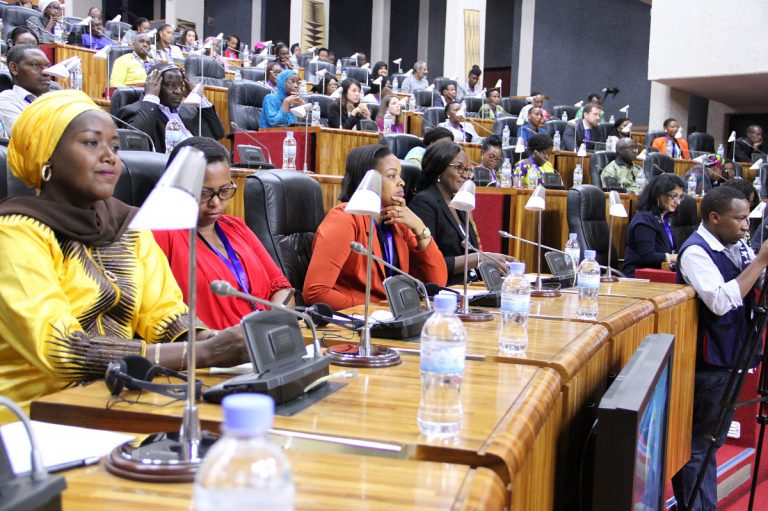
Правительство Руанды в 2000 году возглавил Поль Кагаме, занимавший до этого пост вице-президента. Демократия режима Кагаме в целом довольно формальна: хотя конституция, принятая в 2003 году, предусматривает демократическую политическую систему, антиправительственные движения жестко подавляются, не оставляя места для крупных оппозиционных партий. Правительство при президенте Поле Кагаме взялось за реализацию плана, известного как Умуганда. Каждую последнюю субботу месяца движение в столице останавливалось на несколько часов, чтобы руандийцы могли навести порядок на улицах. Чистота — один из показателей, которыми Руанда гордится. В правительстве Кагаме также заработала Комиссия национального единства и примирения. Она отвечала за публикацию отчетов, показывающих, насколько хорошо люди живут друг с другом. Любые разжигающие ненависть высказывания в стране запрещены. За оправдание геноцида установлены значительные сроки.
Каждую последнюю субботу месяца движение в столице останавливалось на несколько часов, чтобы руандийцы могли навести порядок на улицах
Важным фактором модернизации стала также активная дипломатия Руанды. С момента создания своего правительства РПФ систематически прилагал усилия для назначения руандийцев на стратегические посты в Африканском союзе, Африканском банке развития и других международных организациях. Миграция, будь то внутренняя или международная, тоже оказывает глубокое влияние на социально-экономическое развитие Руанды. Она играет важную роль благодаря передаче навыков, знаний и технологий, а также инвестициям и денежным переводам, используемым для развития страны, общин и семей мигрантов.


